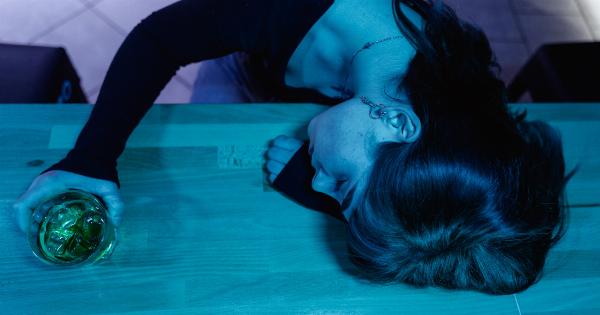Alcohol consumption has become a major part of modern-day culture. From social gatherings to parties and celebrations, alcohol is consumed regularly. While it may seem harmless, excess alcohol consumption can have serious health ramifications.
One of the most significant impacts of alcohol consumption is on sleep. Many individuals consume alcohol before bed to help them sleep, but does drinking alcohol before bed affect your sleep?.
What is Alcohol?
Alcohol is a legal drug that is produced through the process of fermenting grains, fruits, or vegetables. It contains ethanol, a type of alcohol that is responsible for the mind-altering effects of drinking.
Alcohol is commonly consumed in many forms, including beer, wine, and spirits. It is a depressant that affects the central nervous system, slowing down brain activity.
How Does Alcohol Affect Sleep?
While alcohol may help individuals fall asleep more quickly, it has a negative impact on the quality of sleep. The sleep that is induced by alcohol is not as restorative as natural sleep.
Alcohol consumption before bed disrupts the normal sleep cycle by suppressing REM sleep and causing frequent awakenings throughout the night. REM sleep is the stage of the sleep cycle where the brain is most active, and it is essential for mental and physical restoration.
Interruptions to this stage of sleep can result in feeling tired and sluggish the next day, even after a full night’s sleep.
Alcohol and Sleep Disorders
Alcohol consumption before bed can also exacerbate existing sleep disorders such as sleep apnea. Sleep apnea is a condition where a person’s breathing is interrupted during sleep.
Alcohol relaxes the muscles in the throat, which can increase the likelihood of the airway becoming blocked during sleep. This can result in snoring, gasping, or choking sounds during sleep. Alcohol consumption can also cause or worsen restless leg syndrome, which is a neurological disorder that causes an uncontrollable urge to move one’s legs while sleeping.
The Quantity of Alcohol Affects Sleep
The quantity of alcohol consumed also has a direct impact on sleep. The more alcohol consumed, the more profound the negative effects on sleep. Consuming a moderate amount of alcohol, such as one or two drinks, may not significantly disrupt sleep.
However, consuming more than this can lead to significant sleep disruptions.
Alcohol Consumption Timing Affects Sleep
The timing of alcohol consumption also affects sleep. Consuming alcohol close to bedtime can lead to disruptions in the second half of the night and reduce total sleep time.
Consuming alcohol several hours before bed may not have as significant an impact on sleep quality since the body has more time to process and metabolize the alcohol.
The Bottom Line
Drinking alcohol before bed does affect sleep quality. While it may help individuals fall asleep more quickly, it disrupts the normal sleep cycle, particularly REM sleep, and can result in frequent awakenings and reduced sleep quality.
The quantity and timing of alcohol consumption are also important factors to consider when it comes to sleep quality. Individuals who consume alcohol on a regular basis should consider reducing their alcohol consumption before bed to improve their sleep quality and overall well-being.
Conclusion
While alcohol may seem like a harmless way to unwind after a long day, it can have serious negative impacts on sleep quality. It disrupts the natural sleep cycle, which can result in feeling tired and sluggish the next day.
Individuals who consume alcohol on a regular basis should be mindful of the quantity and timing of their alcohol consumption to improve their sleep quality and overall well-being.































